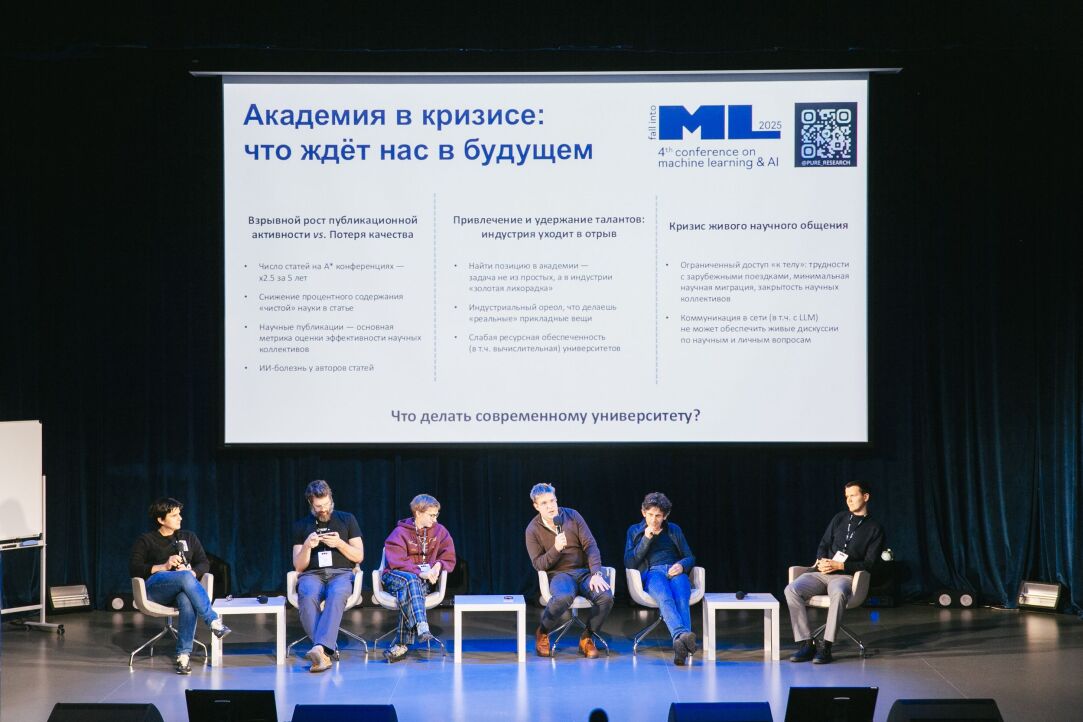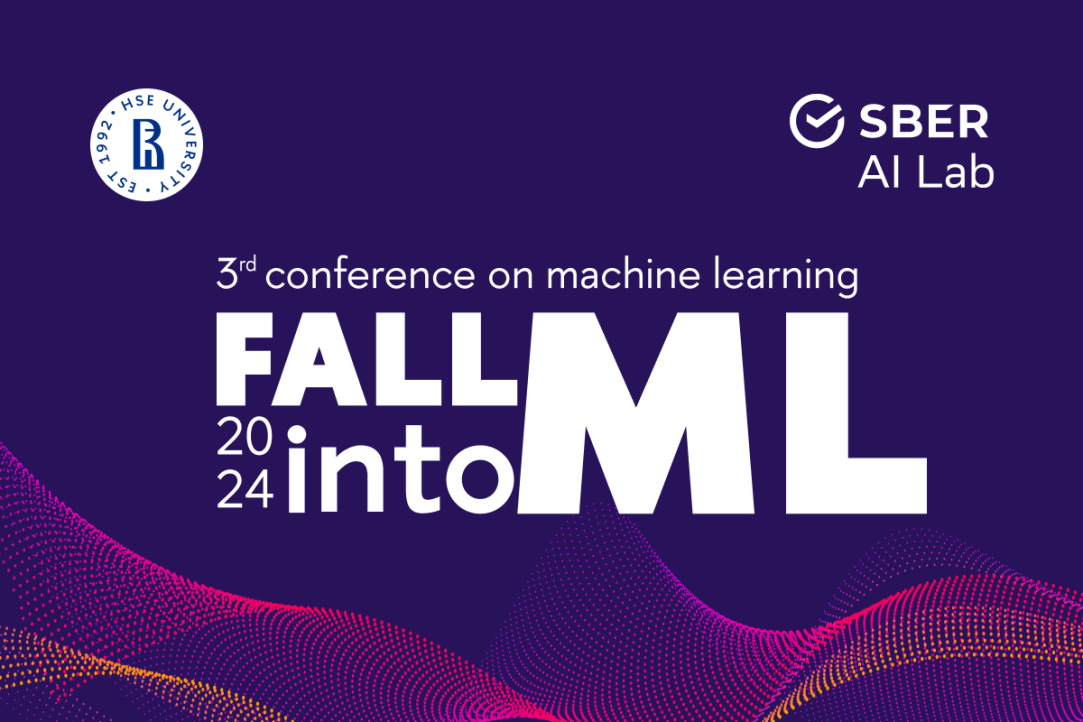
HSE Scientists Optimise Training of Generative Flow Networks
Researchers at the HSE Faculty of Computer Science have optimised the training method for generative flow neural networks to handle unstructured tasks, which could make the search for new drugs more efficient. The results of their work were presented at ICLR 2025, one of the world’s leading conferences on machine learning. The paper is available at Arxiv.org.

Quantity over Quality: How Publication Activity Leads to Crisis
Participants of the 4th Fall into ML conference at HSE University held a discussion titled ‘Academia in Crisis: What Does the Future Hold?’ In particular, they examined why the number of scientific publications continues to grow, what the quality of these papers is, what expectations should be placed on researchers, and what role artificial intelligence plays in preparing academic articles.

Start of a Long Journey: Young HSE Scientists Contribute to Learning Theory at COLT 2025
Participation in high-level international events is crucial for the professional development of researchers starting their career in science. It provides an opportunity to exchange ideas, create promising teams, and make important connections. This summer, Denis Ryapolov and Askar Tsyganov, students of the Applied Mathematics and Computer Science programme and staff of the AI and Digital Sciences Institute at the Faculty of Computer Science of HSE University, attended the prestigious international Conference on Learning Theory, COLT 2025, which was held in Lyon, France. In an interview, they shared their experiences and impressions from the trip.

Analysing Genetic Information Can Help Prevent Complications after Myocardial Infarction
Researchers at HSE University have developed a machine learning (ML) model capable of predicting the risk of complications—major adverse cardiac events—in patients following a myocardial infarction. For the first time, the model incorporates genetic data, enabling a more accurate assessment of the risk of long-term complications. The study has been published in Frontiers in Medicine.

‘We Bring Together the Best Russian Scientists and AI Researchers at HSE University Site’
On October 25–26, 2024, HSE University’s AI and Digital Science Institute and the AI Research Centre hold the Fall into ML 2024 conference in Moscow. This year’s event will focus on the prospects in development of fundamental artificial intelligence, with SBER as its conference title partner.

HSE Researchers Demonstrate Effectiveness of Machine Learning in Forecasting Inflation
Inflation is a key indicator of economic stability, and being able to accurately forecast its levels across regions is crucial for governments, businesses, and households. Tatiana Bukina and Dmitry Kashin at HSE Campus in Perm have found that machine learning techniques outperform traditional econometric models in long-term inflation forecasting. The results of the study focused on several regions in the Privolzhskiy Federal District have been published in HSE Economic Journal.

‘The Goal of the Spring into ML School Is to Unite Young Scientists Engaged in Mathematics of AI’
The AI and Digital Science Institute at the HSE Faculty of Computer Science and Innopolis University organised a week-long programme for students, doctoral students, and young scientists on the application of mathematics in machine learning and artificial intelligence. Fifty participants of Spring into ML attended 24 lectures on machine learning, took part in specific pitch sessions, and completed two mini-courses on diffusion models—a developing area of AI for data generation.

Software for Rapid Detection of Dyslexia Developed in Russia
HSE scientists have developed a software tool for assessing the presence and degree of dyslexia in school students based on their gender, age, school grade, and eye-tracking data. The application is expected to be introduced into clinical practice in 2024. The underlying studies were conducted by specialists in machine learning and neurolinguistics at the HSE AI Research Centre.

‘Every Article on NeurIPS Is Considered a Significant Result’
Staff members of the HSE Faculty of Computer Science will present 12 of their works at the 37th Conference and Workshop on Neural Information Processing Systems (NeurIPS), one of the most significant events in the field of artificial intelligence and machine learning. This year it will be held on December 10–16 in New Orleans (USA).
HSE University Holds HSE Sber ML Hack
On November 17-19, The HSE Faculty of Computer Science, SBER and cloud technology provider Cloud.ru organised HSE Sber ML Hack, a hackathon based around machine learning. More than 350 undergraduate and graduate students from 54 leading Russian universities took part in the competition.


Submission Deadline: December 20, 2025